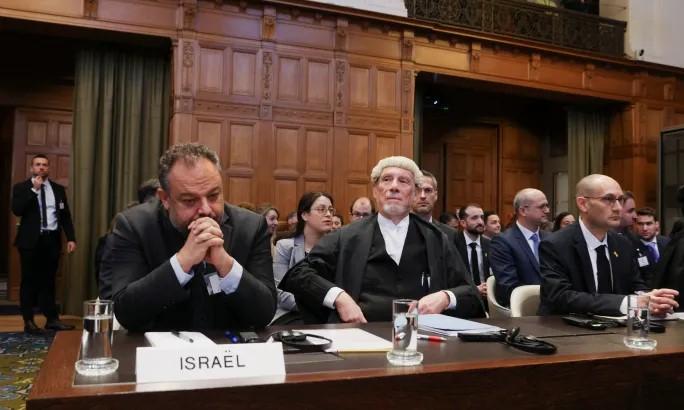
Global allies turn hostile as Israel breaches ICJ order against genocide
text_fieldsIn a growing diplomatic crisis, Israel is accused of violating the orders issued by the International Court of Justice (ICJ) just a fortnight ago. The UN Special Rapporteur on the occupied territories, Francesca Albanese, claims that Israel is failing to comply with the court's directives to protect Palestinians' rights and cease activities that could amount to genocide.
The ICJ had given Israel until February 23 to report on its actions regarding six specific orders, including ending incitement to genocide and improving the supply of humanitarian aid. Despite hours of negotiations with Israeli officials, senior Western officials report only marginal and incremental improvements since the January 26 ruling.
The ICJ's orders aimed at practical effects include requiring Israel to prevent and punish public incitement to commit genocide against Palestinians in Gaza, as well as taking immediate measures to improve the provision of basic services and humanitarian aid.
Francesca Albanese disagrees with Israel's interpretation, stating that the ICJ mandated Israel to cease all activities that could constitute genocide. However, she notes that violence and the demolition of civilian infrastructure have continued, exacerbating living conditions in Gaza.
Since the court order, at least 1,755 Palestinians have been killed in Gaza, with Albanese pointing out that fatalities are not solely the result of direct attacks but also due to a scarcity of medical supplies, inadequate access to food and water, and harsh living conditions.
Israeli Prime Minister Benjamin Netanyahu has reaffirmed Israel's commitment to international law and its right to defend itself. He labelled the ICJ case as a "vile attempt" to deny Israel its fundamental right, with the US calling the case "meritless."
Legal experts argue that the extent of Israel's compliance with the ICJ orders is not only a test of the court's authority but also a challenge for other signatories to the genocide convention. The ICJ case was initially brought by South Africa, but Nicaragua has sought to join, alleging Israel's breach of the convention.
Amid the international fallout, Belgium has banned arms sales to Israel, Japan's Itochu Aviation is ending strategic cooperation, and the Dutch appeal court is set to decide on the sale of F-16s to Israel. The US opposes a resolution endorsing the ICJ's orders and calling for a humanitarian ceasefire.
Yussef Al Tamimi, a visiting fellow at New York University School of Law, argues that states assisting Israel's campaign in Gaza have stricter obligations under the genocide convention. South Africa intends to press further on Israeli compliance, and Algeria has proposed a resolution endorsing the ICJ's orders.
Despite Israel's presentation to the ICJ, concerns persist over two key issues: incitement and aid. Incitement allegations stem from a conference organized by ultranationalist Otzma Yehudit, where senior officials articulated plans encouraging the exodus of Gaza's inhabitants and the influx of Israeli settlers.
The most severe violation relates to the order concerning aid, with reports indicating a critical humanitarian situation in Gaza due to existing restrictions on aid delivery. The UN Office for the Coordination of Humanitarian Affairs noted the denial of access to a significant percentage of planned aid missions.
Israel's military body, Cogat, disputes the humanitarian crisis's severity, highlighting operational bakeries in Gaza. However, British and US officials believe aid entering Gaza could be doubled quickly, raising concerns about Israel's approach and potential diversion of goods to Hamas.
The ICJ's authority and the obligations of signatories to the genocide convention are being put to the test, with the repercussions extending beyond legal and diplomatic realms into humanitarian concerns and global arms trade dynamics.























